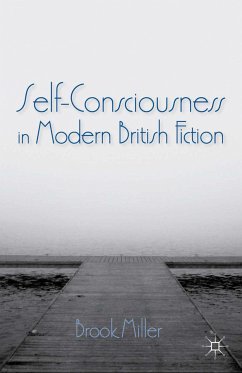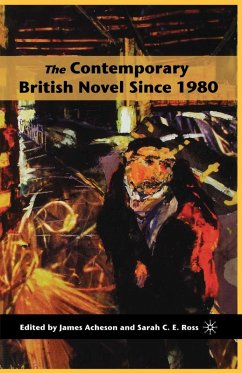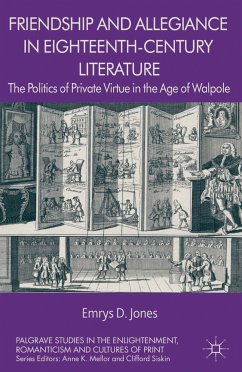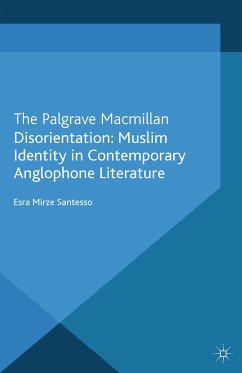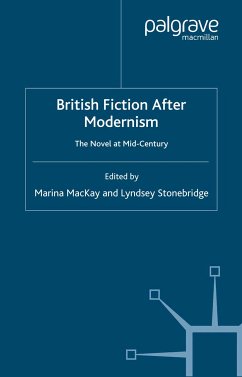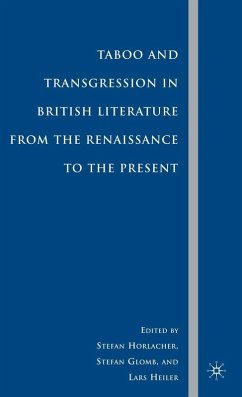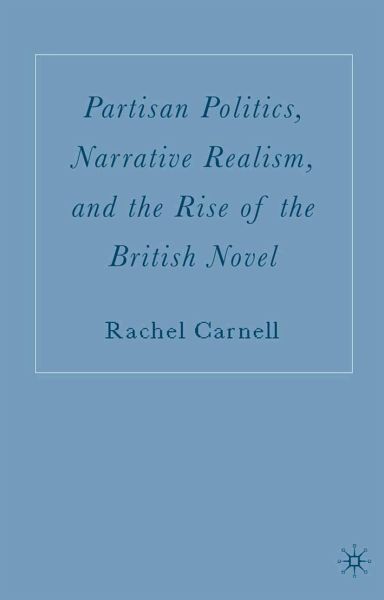
Partisan Politics, Narrative Realism, and the Rise of the British Novel (eBook, PDF)
Versandkostenfrei!
Sofort per Download lieferbar
40,95 €
inkl. MwSt.
Weitere Ausgaben:

PAYBACK Punkte
20 °P sammeln!
This book considers why narrative realism in literature is seen as a 'full account' of 'real life' and the individual self. Unconventionally, Carnell shows that the formal conventions of narrative realism emerged in the seventeenth century in response to an explosion of partisan writings that put into play competing versions of political selfhood.
Dieser Download kann aus rechtlichen Gründen nur mit Rechnungsadresse in A, B, BG, CY, CZ, D, DK, EW, E, FIN, F, GR, HR, H, IRL, I, LT, L, LR, M, NL, PL, P, R, S, SLO, SK ausgeliefert werden.




